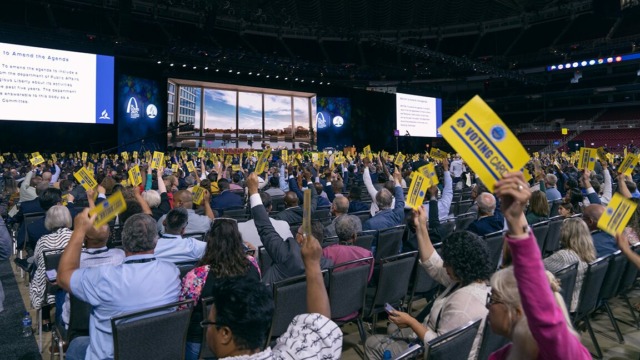By Nathaniel Gamble
Freedom is one of the most precious values for the United States. Americans value their economic, political, intellectual, and religious freedoms as the American dream, believing such freedoms safeguard their abilities to chart their own courses, plan their own futures, and share their own beliefs. Americans have fought and died to safeguard these freedoms since the founding of our nation.
The American concept of religious freedom—namely, the freedom to be religious or abstain from religion according to the dictates of your conscience—was founded on the biblical idea of justice. The founding fathers and mothers of this nation wrote very little specifically about religious freedom. Instead, they tended to write about religious freedom in light of justice and other freedoms, because they saw religious freedom as part of a cluster of rights and values.
Several biblical passages were marshalled and commented on by the architects of the United States from the 1760s through the 1790s, but the most popular passage was Exodus 23:1-9. In these verses are listed several key ingredients to constructing a safe and cohesive society: do not lie or serve as a false witness to help a guilty person (verse 1); do not blindly follow the crowd to determine justice and do not favor a poor person in a court case (verses 2-3); when dealing with your enemy, return their animals to them if they wander off and help them if their animals have fallen under a heavy load (verses 4-5); do not favor the rich in lawsuits and have nothing to do with a false charge or executing an innocent person (verses 6-7); do not accept a bribe, because this is a perversion of justice (verse 8); do not oppress a foreigner, because you were once foreigners in Egypt (verse 9). Much of Exodus 23:1-9 deals with court systems and establishing fair jurisprudence, which helped early Americans flesh out what it means to pursue justice and guard each other’s religious freedom.
Despite this profession of faith in religious freedom, however, the American experiment began with a checkered history in terms of the safeguarding of that freedom. Several of the original thirteen colonies supported state-sponsored churches into the nineteenth century, with New Hampshire holding out until 1817, Connecticut until 1818, and Massachusetts adopting this approach as late as 1833. Up until that time, Baptist and Methodist ministers had to pay taxes that went directly to their Congregationalist counterparts, and they were often jailed for protesting such state-sponsored religion.
The first Jewish synagogue in the United States was the Touro Synagogue in 1762 (the congregation was started by Sephardic Jews in 1658). Nevertheless, it is telling that the synagogue was built in Rhode Island, a colony started by Roger Williams as a haven for people to practice their own religion without fear of intolerance or molestation.
And while early Philadelphia claimed to be hospitable to Islam, most Muslims in the late eighteenth and early nineteenth centuries were slaves from Africa—and slaves who gathered for religious purposes were outlawed in the city of brotherly love during this time.
The purpose of pointing out this discrepancy between the American ideal of promoting religious freedom and the American practice of (often) failing to protect it is not to attack the United States. Contrary to revisionist American history, there is much to love and appreciate about the United States. But the most patriotic action Americans can do is identify where America has failed to uphold its own ideal, so that we don’t fall into the trap of thinking that America will save us.
Seventh-day Adventists would do well to pay attention to what excited the early Adventists about religious freedom: according to Exodus 23:19-20, it is God who ensures the religious freedom of his people. It is good to base religious freedom on the human practice of justice. It is better, however, to base religious freedom on Jesus as the one whom God has sent us to lead us into the promised land.
—Nathaniel Gamble is RMC religious liberty director. Photo by Liz Kirkland via Adobe Firefly.




